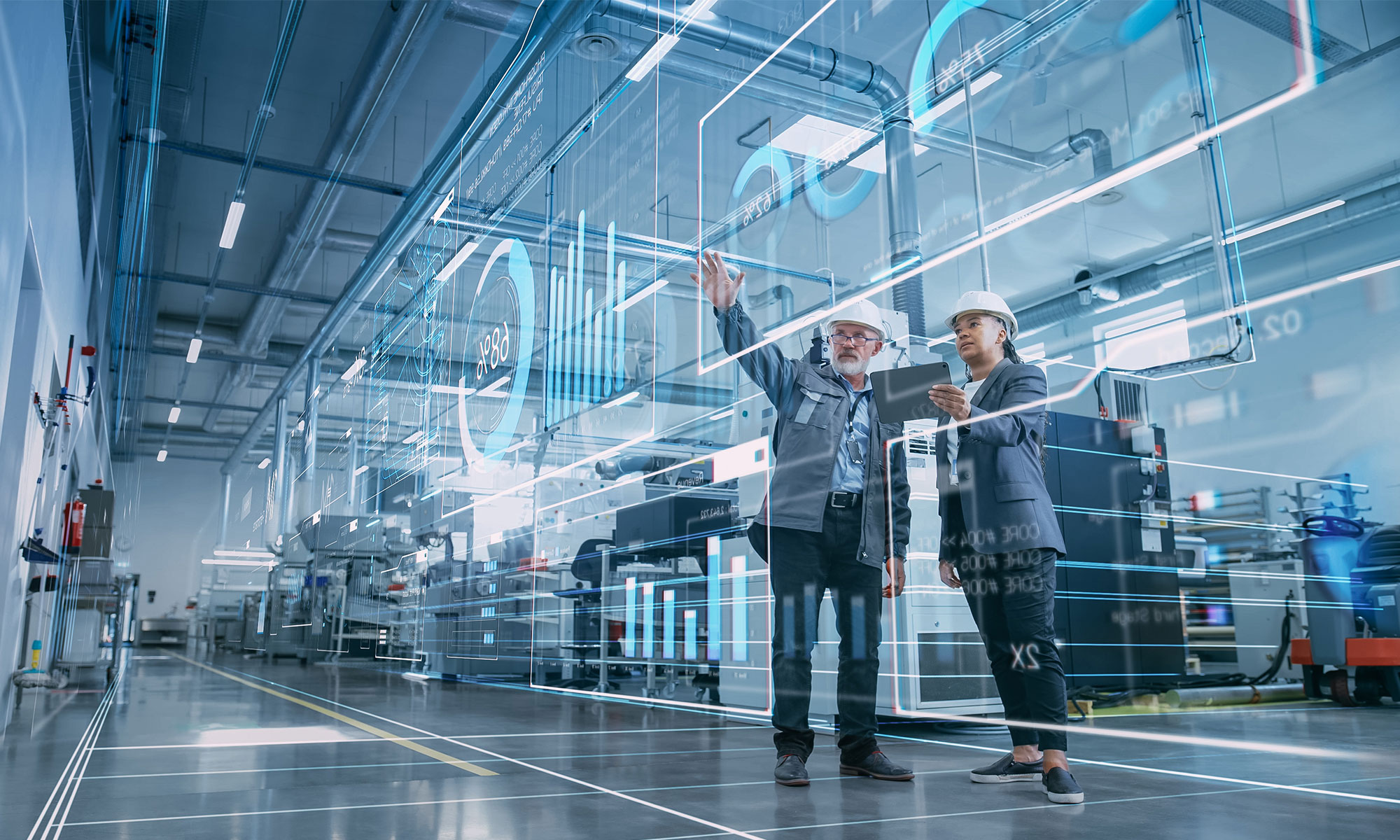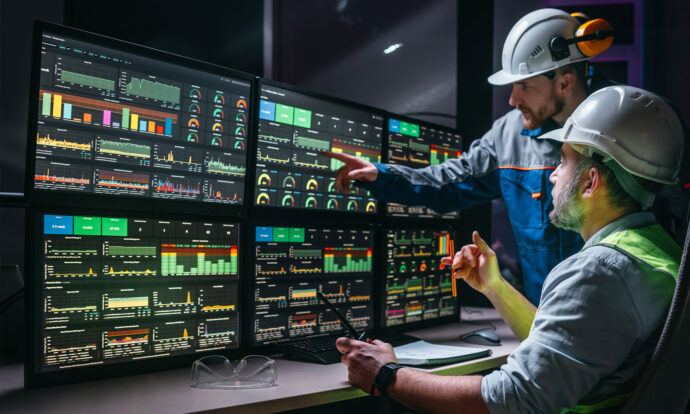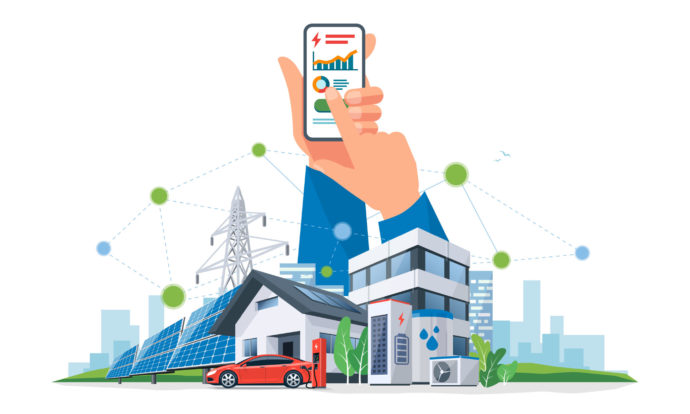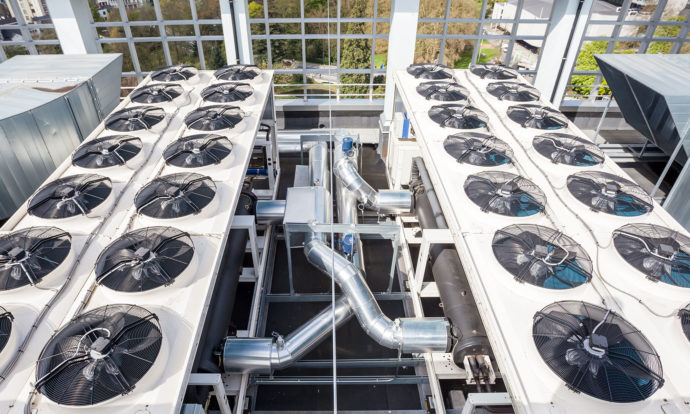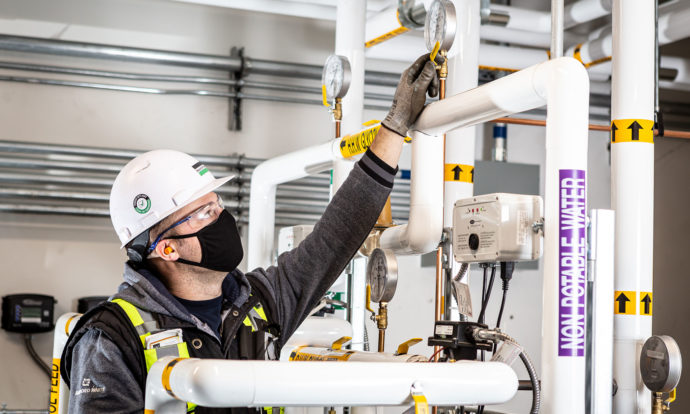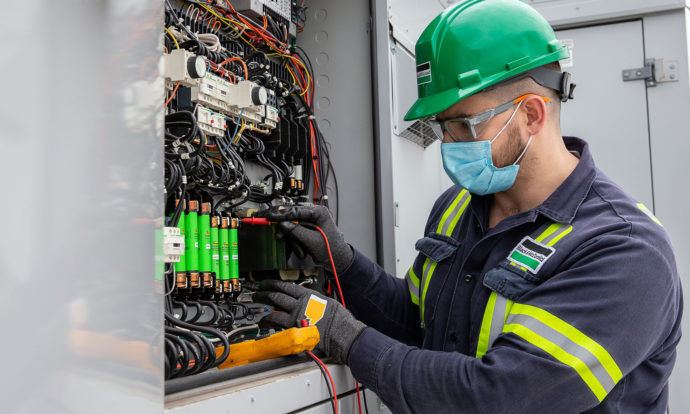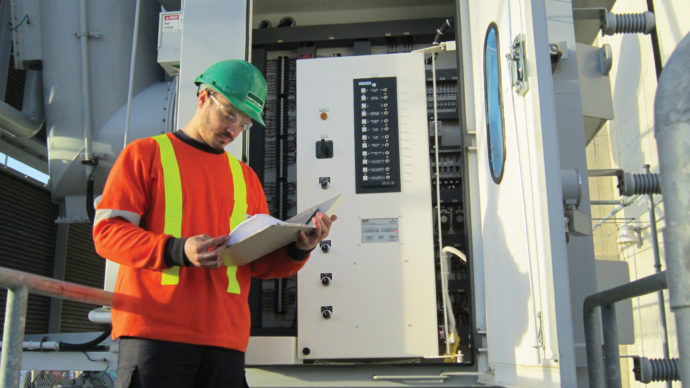Artificial Intelligence (AI) has consumed headlines as language-based platforms like ChatGPT and their evolving technology continue to amaze us with their abilities. Despite concerns over its potential to outsmart humans, AI is increasingly important to many business sectors.
Black & McDonald’s Energy & Sustainability team first explored AI-enabled platforms in 2018 as a part of its turnkey service to help clients accomplish their energy management goals. Specifically, these technologies enabled the accurate measurement and analysis of data and information. This resulted in efficiencies enhanced by the ability to use historical trends to optimize performance and inform future decisions.
Dennis Martini, Director of Business Development for Facility Management (FM) at Black & McDonald, describes AI as a game-changer in facility management.
“AI and Machine Learning can process massive amounts of data quickly, so buildings can operate and run much more efficiently,” he said. “AI-enabled technologies are being applied to make buildings smarter, healthier, and safer—not just in terms of energy and overall performance, but also in terms of security. From facial recognition software to platforms that can detect if someone is carrying a weapon, we are seeing a lot of improvements and tools in the built space. Of course, it also reduces operating costs, which is always a goal.”
The benefits of AI-driven technologies are not reserved exclusively for new buildings.
“While most new buildings are designed with AI-enabled or IoT-enabled technologies already in place, older buildings can be retrofitted to leverage some of the latest tools and solutions,” Martini said. “We’re still trying to get our minds around what all AI can do. We’re starting to get away from traditional, planned maintenance and move toward predictive maintenance and fault detection—meaning, our buildings will be able to tell us when something is wrong and pre-empt a failure.”
For large language-based AI platforms, the potential is promising. The future can look like AI technologies writing exhaustive scope documents, fulfilling RFPs, and other labor-intensive tasks.
Martini is also confident that AI technologies will never displace the need for real people.
“We’ll always need someone to turn wrenches and make physical adjustments,” he said. “As AI develops, I think it will help attract more younger people to the field—people less interested in pushing paper and more focused on analyzing data and exploring emerging technologies.”
AI-enabled controls and smart technologies allow facility owners to seek new avenues to lower their carbon footprint and prolong the life of their assets and equipment. Smart building features and AI-driven platforms are developing rapidly, facility managers can take advantage of dashboards that offer real-time energy readings.
“Smart building features and AI-driven platforms are developing rapidly, and with each new iteration we are seeing greater benefits,” Martini said. “Facility managers are capable of making better, more informed decisions in real-time while capturing data to drive meaningful change.”
In short, the analytical power of smart building technology is accelerating, and as Martini sums it up, “The more data we capture and use to our advantage the more rewards we will reap for our buildings. It’s a win-win situation.”
The Facility Service experts at Black & McDonald can support your facility’s implementation of AI. Our in-house facilities management team can work with you to develop a robust FM strategy that ensures your facility can reap the benefits of this evolving technology.

